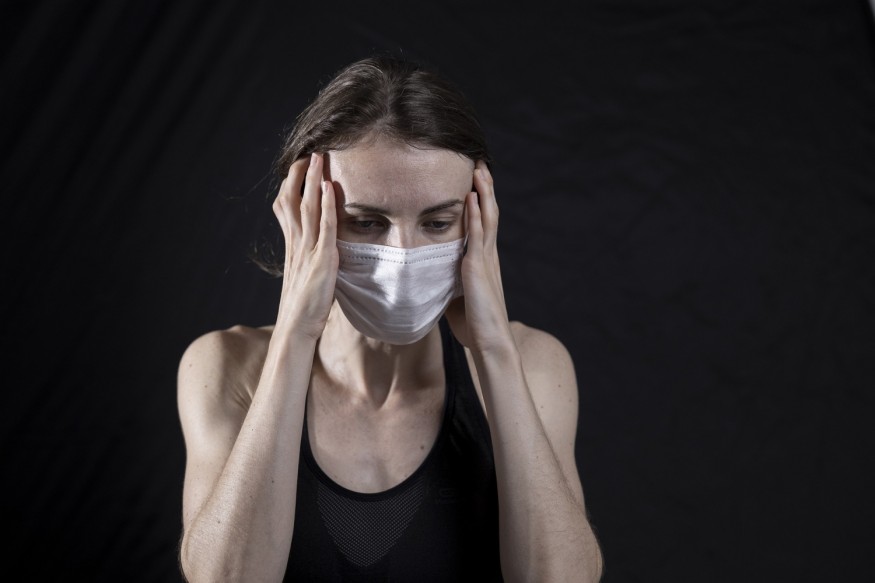Dermatologist Dr. Elizabeth Dawson is one the countless COVID-19 long-haulers today and, after conducting her own research, she discovered she had usual symptoms of postural orthostatic tachycardia syndrome or POTS.
According to a Medscape report, the day this doctor was diagnosed with COVID-19 in October 2020, woke up feeling as if she had a terrible hangover. After four months, she tested negative for COVID-19, although her symptoms have worsened.
Indeed, Dawson is one of what one doctor called "waves and waves" of long -haulers who stay sick long after they retest negative for COVID-19.
This medical report specified that a substantial percentage is suffering from the syndromes that few doctors understand or treat.
ALSO READ : 'Worrying' Mutation Detected in the UK

Life-Changing COVID-19 Effect
A yearlong wait, in fact, to see a specialist for such syndromes was typical even prior to the patients' ranks were swelled by post-COVID-19 newcomers. For some people, the results are life-changing.
Before fall, 44-year-old Dawson from Portland, Oregon, regularly attended to 25 to 30 patients each day, on top of caring for her three-year-old child and long-distance runs.
At present, her heart is racing whenever she's trying to stand. She's experiencing severe headaches, constant nausea and brain fog that she explained, it feels like she has dementia.
Aside from that, the dermatologist's fatigue is severe, as well. She shared, it is as if all her energy "has been sucked from my soul and my bones." In addition, she said she could not stand for longer than 10 minutes without feeling dizzy.
Postural Orthostatic Tachycardia Syndrome
POTS is a disease of the autonomic nervous system which regulates involuntary functions like heart rate, blood pressure and vein contractions that support the flow of blood.
According to Johns Hopkins Medicine's, it is a serious condition, not only feeling lightheaded on rising abruptly, which impacts a lot of patients who have been confined to bed a long time with COVID-19 infection as their nervous system is readjusting to greater activity.
At times, POTS is overlapping with autoimmune issues, involving the immune system that attacks healthy cells. Before the occurrence of COVID-19, approximately three million Americans had postural orthostatic tachycardia syndrome.
A lot of POTS patients claim it took them years to even be diagnosed for having the disease. Dawson, with her own suspected diagnosis in hand, soon found out there were no specialists in autonomic disorders in Portland.
In fact, she said, there are just 75 board-certified autonomic disorder doctors in the United States. Other doctors though, have examined and treated POTS, and similar conditions.
Growing Loads of Cases
The prevalence of this syndrome was documented in an international study of more than 3,700 long-COVID-19 haulers, resulting in study authors concluding that all COVID-19 patients who have rapid heartbeat, dizziness, fatigue or brain fog, need to be screened for POTS.
In a recent statement that came out in the National Library of Medicine in March 2021, the American Autonomic Society said, a substantial mix of health care resources and a substantial additional study investment will be necessitated to address the growing load of cases.
Lauren Stiles, who, in 2012 founded Dysautonomia International after he was diagnosed with POTS said, patients who have been suffering for decades are worrying about the increasing number of people who should be tested and treated, but the lack of growth in doctors skilled in automatic nervous system syndromes.
On the other hand, Stiles hopes increasing consciousness among doctors will at least get patients who have dysautonomia diagnosed fast, instead of years later.
Related information about postural orthostatic tachycardia syndrome is shown on Caring Medical's YouTube video below:
RELATED ARTICLE : COVID-19 Patients Likely to Experience Five Months Without Sense of Smell and Taste
Check out more news and information on COVID-19 on Science Times.












